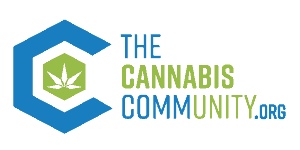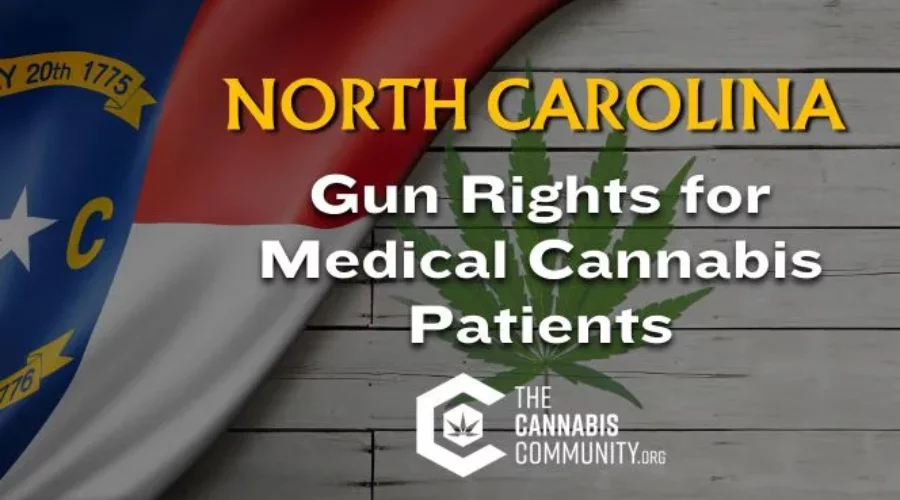North Carolina Gun Rights for Medical Cannabis Patients
Table of Contents
In North Carolina, marijuana is generally illegal. However, there are exceptions to the limited use of cannabis products — particularly low-THC CBD oils — to treat intractable forms of epilepsy. Intractable epilepsy is a type of epilepsy that doesn’t respond to conventional medications.
Marijuana cultivation was allowed in North Carolina in the late 18th century. However, tolerance for marijuana decreased in the 20th century, leading to stricter regulations. In 1937, the Marihuana Tax Act made marijuana illegal in the U.S., and the 1970 Controlled Substances Act categorized it as a Schedule I drug.
In 2014, there was an effort within the North Carolina legislature to legalize medical marijuana, but this initiative faced defeat in the House Committee. The Committee issued an unfavorable report, effectively halting any consideration of medical marijuana-related bills for the following two years.
In 2015, a significant development occurred when Governor Pat McCrory signed HB766 into law. This bill brought about amendments to the Epilepsy Alternative Treatment Act, which had been passed the year prior. Under these amendments, patients diagnosed with intractable epilepsy gained the opportunity to utilize CBD-based cannabis extracts containing low levels of THC as an alternative treatment to conventional medications.
These cannabis extracts were permitted to contain only trace amounts of THC — specifically less than 0.9% THC by weight — while they were required to have at least 5% CBD. To qualify for this treatment, patients had to receive a diagnosis from a neurologist affiliated with any state-licensed hospital in North Carolina and exhibit a severe seizure disorder, such as intractable epilepsy.
North Carolina has partially decriminalized marijuana possession, with possession of 0.5 ounces or less resulting in a $200 fine. However, both medical and recreational marijuana remain illegal, with harsher penalties for those with prior convictions.
North Carolina does not issue medical marijuana identification cards. Instead, caregivers must register with the North Carolina Department of Health and Human Services(NCDHSS) to obtain medical cannabis for patients. Caregivers must be at least 18 years old, state residents, and related to the patient if the patient is a minor. The caregiver registration process involves providing patient and neurologist information, including an attestation of the patient’s condition.
Patients who are eligible for hemp extract treatment are allowed to possess and transport their hemp extract, provided they possess a DHHS Caregiver Registration letter. This letter essentially grants them the legal right to carry the hemp extract with them.
This legislative inaction leaves North Carolina as one of the 13 states in the United States that have yet to establish a medical cannabis program. Despite this, public support for medical cannabis in North Carolina has remained strong. In a poll conducted by Elon University in January 2021, 73% of North Carolinians expressed their support for medical cannabis.
On June 6, 2022, the North Carolina Senate made a historic move when they voted 36-7 in favor of SB 711 — also known as the North Carolina Compassionate Care Act — which was sponsored by Sen. Bill Rabon (R). But during the short Spring session of 2022, the House of Representatives, controlled by Republicans, chose not to take up the bill. House Speaker Tim Moore (R) expressed concerns about the legislation, emphasizing the need for further study.

Does Having a Medical Cannabis Card (DHHS Caregiver Registration) Mean Not Being Eligible for a Gun License in North Carolina?
In North Carolina, open carry of firearms is allowed without the need for a permit. That said, individual counties have the authority to regulate the display of firearms on public roads, sidewalks, alleys, or other public property. The minimum age for open carry is 18 years old.
Concealed carry of firearms is legal in North Carolina for residents who hold a North Carolina Concealed Handgun Permit (CHP) and for non-residents with any valid license or permit. To obtain a North Carolina CHP, residents and military members permanently residing in North Carolina must complete a state-approved firearms training course. The minimum age requirement for concealed carry is 21 years old.
While North Carolina does have certain regulations regarding firearms possession and concealed carry permits, the possession of a DHHS Caregiver Registration for medical purposes does not automatically prevent someone from obtaining a gun license or permit, such as a Concealed Handgun Permit (CHP).
It’s important to note that the eligibility for a gun license or permit can be subject to various factors and requirements, including an individual’s age, criminal history, and compliance with state and federal laws.
Can You Take Your Gun to a Dispensary in North Carolina?
The state of North Carolina does not have a legalized medical or recreational marijuana program, and as a result, there are no licensed dispensaries where cannabis or CBD oil products are available for purchase. Any products containing CBD that are available in the state are typically sold through various retailers and storefronts, but they are not considered licensed dispensaries in the traditional sense.
There are generally no specific laws prohibiting the possession of firearms in a CBD retailer or storefront. However, individual businesses have the authority to set their own policies regarding firearms on their premises. It’s important to check whether the specific CBD retailer or storefront you plan to visit has posted any notices prohibiting firearms or if they have established policies against firearms on their premises.
Can You Consume CBD and Own a Gun in North Carolina?
Under the Agricultural Act of 2018 (Farm Bill), cannabis extracts from industrial hemp are federally legal as long as THC content does not exceed 0.3%. The NC Epilepsy Alternative Treatment Act allows patients with untreatable epilepsy to use a hemp extract with THC levels under 0.9% and CBD levels of at least 5% to manage their illness and symptoms.
You can legally consume CBD and own a gun in North Carolina, as long as you comply with state and federal laws. In North Carolina, CBD is legal, and there are no specific state laws that prohibit CBD consumers from owning firearms.
However, it’s important to be aware of federal regulations. Under federal law, the possession and use of controlled substances — including marijuana — are prohibited. CBD can be derived from marijuana plants, which is why you may want to ensure that the CBD products you consume contain THC levels within the legal limits set by both state and federal regulations.
As long as you are consuming CBD products that comply with these legal limits and you meet all other federal and state requirements for gun ownership, you should be able to legally consume CBD and own a gun in North Carolina.
Can I Own a Gun if My Spouse Has A Medical Cannabis Card in North Carolina?
Owning a gun when your spouse has a DHHS Caregiver Registration in North Carolina is generally permitted under state law. The DHHS Caregiver Registration is associated with the use and possession of hemp-derived CBD products for medical purposes, and it does not typically involve the use of controlled substances that are subject to federal firearms restrictions.
Can I Own a Gun if I Have an Expired Medical Card?
In North Carolina, there are generally no specific state laws that directly prohibit individuals with an expired DHHS Caregiver Registration from owning a gun. While the DHHS Caregiver Registration pertains to CBD products and not marijuana, there could be potential federal legal complexities if the registration is associated with the use of any controlled substances.
Firearms dealers may have their own policies and procedures when it comes to selling firearms to individuals with expired medical registrations or other legal documents. It’s advisable to check with firearms dealers about their specific requirements and policies.
Can You Own a Gun if You Work at a Dispensary?
There are no dispensaries as such in North Carolina so it is possible to own a gun if you work at a CBD retail store or reseller. Your employment at such an establishment does not, on its own, disqualify you from gun ownership according to state law.
Compliance with federal firearms regulations is essential. You should adhere to background check requirements when purchasing a gun through a licensed firearms dealer and be aware of any specific employer policies regarding employees owning guns. Consulting with a legal expert well-versed in firearms and drug laws is advisable to address any potential complexities and ensure compliance with all relevant laws and regulations.
Get Your Medical Cannabis Card Online and in Minutes
Back to Directory



Pingback: North Carolina Gun Rights for Medical Cannabis Patients – Cannabis, Cannabinoid, and Marijuana Research Repository